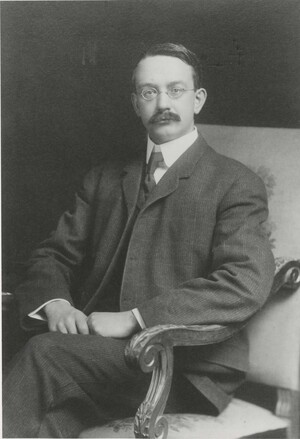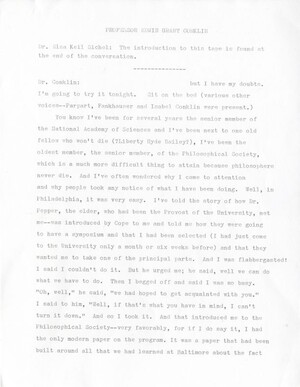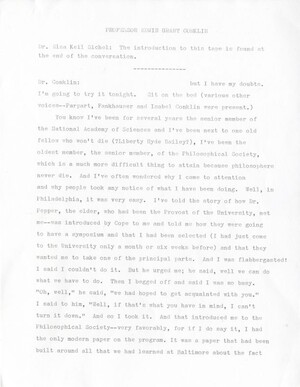Edwin Grant Conklin was born in Waldo, Ohio, on November 24, 1863 to Dr. Abram Virgil Conklin and Nancy Marie Hull. He grew up on a farm, though his father was also a country doctor, and Conklin reported that country living led him to love nature. His own studies and then teaching in one room schools served him well overall, but it also meant that he encountered serious science for the first time only in college, at Ohio Wesleyan University. There he became enchanted by biology.
To study biology, he went to the new Johns Hopkins University in Baltimore, Maryland, and received his PhD in 1891. Conklin spent his summers at the Marine Biological Laboratory in Woods Hole, Massachusetts which opened in 1888, and contributed to the Embryology Course. Conklin loved teaching and telling stories, and his lectures on Crepidula (a type of sea snail) and Ascidian development remained a favorite for decades. In 1939, Conklin talked about his snails as distinguished neuroembryologist Viktor Hamburger taught the course and young John Trinkaus (Trink) began his long association with the MBL as a researcher, instructor, and Trustee. Conklin helped create a community of discovery that helped make the MBL a unique gathering place for science and social life.
Conklin had taught at Rust University in Mississippi before going to Johns Hopkins, then taught at Ohio Wesleyan (1891-1894), Northwestern (1894-1896), and the University of Pennsylvania (1896-1908) before settling for the rest of his career at Princeton University (1908-1935).
He served in editorial roles with the Journal of Morphology, Biological Bulletin, and Journal of Experimental Zoology. He received the John J. Carty Award from the National Academy of Sciences, and the Society for Developmental Biology established the E. G. Conklin Medal in 1995 in his honor.
As a Methodist, Conklin also became involved with debates about evolution and religion. He tried to persuade Methodist leaders in particular that biological understanding and evolution are completely compatible with a religious life, though not with narrow interpretations. At the same time, he often spoke to biologists about the compatibility of religion and science, along with discussions of eugenics as a viable approach for improving human health.
- Allen, Garland E. “Conklin, Edwin Grant.” Dictionary of Scientific Biography 3: 389–91.



